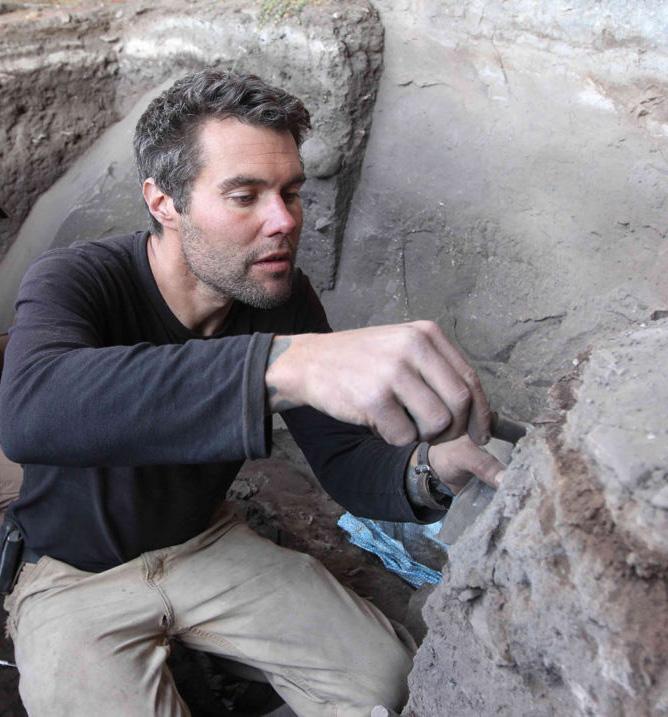By Richard LeComte
LEXINGTON, Ky. --

Kurt Rademaker, an archaeologist and University of Kentucky Department of Anthropology alumnus, will present a colloquium titled “On the Trail of Early South Americans in the Andes” at noon Friday, April 14, in the Young Library Auditorium. The event is free and open to the public. The talk is co-sponsored by UK’s College of Arts & Sciences and the Human Evolution and Virutal Archaeology Lab.
Rademaker is an assistant professor at Michigan State University. He is interested in human-environment dynamics, the initial settlement of South America, adaptations in extreme environment and hunter-gatherers. After graduating from UK, Rademaker worked as a professional archaeologist in the Eastern Woodlands and Great Basin regions of the United States with several private and federal entities, including the USDA Forest Service and the U.S. Department of the Interior.
Between 2014 and 2015, he was awarded the Humboldt Postdoctoral Research Fellowship and the Tübingen Early Prehistory and Quaternary Ecology Research Prize in Germany. His current work, primarily in Peru, involves transdisciplinary collaboration with earth science colleagues to produce high-resolution paleoenvironmental records and with biological anthropologists and paleogeneticists to study how humans have adapted to live in high-elevation mountain regions, some of the most challenging environments on Earth
“When and by which routes did people first enter South America and successfully adapt to diverse environmental zones?” Rademaker said. “Was the earliest dispersal along the Pacific Coast? How did people first explore and ultimately settle the high-elevation Andes? These intractable questions have challenged archaeologists for decades. In this talk I will review 20 years of my team’s research, including fieldwork at archaeological sites from the high Andes to the Pacific coast and analytical approaches from landscape to molecular scales.”
